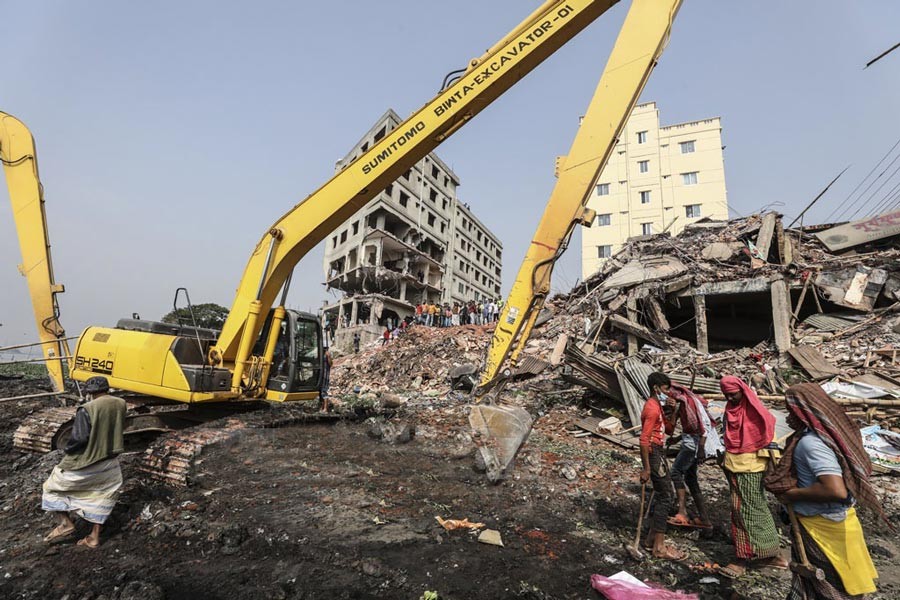An evacuation drive is currently being conducted by the Bangladesh Inland Water Development Authority (BIWTA) on the banks of the Buriganga. The intent demonstrated looks serious and some of its top officials are on record saying that they would demolish any illegal structure no matter how powerful the encroachers are. Sounds quite assertive, no doubt!
However, is it for the first time that the authorities in charge of the government lands have sounded this much tough? Clearly, not. Public memory may be short but not as much short as to forget that the last time the BIWTA also made similar vows and even assured that the recovered land would be turned into parks and walkways so that encroachers could not come back to take over the cleared lands.
In fact the same litany has been fed to the public for years on. Spaces vacated are gradually encroached upon -in some cases no sooner than the bulldozers and the team of demolishers leave the places. True, this time the bulldozers have brought down parts of at least two seven-storey buildings down. This is beside several other buildings and sheds of varying shapes and sizes. The drive has been undertaken at the instruction of the prime minister and the state minister of the ministry of shipping. It will continue three days a week for 11 days.
This is rather puzzling. How do the BIWTA fix the duration of the drive? Has it detected the number of illegal structures built on the Buriganga and made a rough assessment of the time it will take to dismantle those or the time is fixed on the basis of the length of the area to be covered by that time?
There is a wise saying that the enemy must not be given any reprieve once the chance is there to finish it off. So is the case here. No illegal occupier should be shown any mercy whatsoever and enjoy the benefit of doubt. But however tough the BIWTA may sound, its mettle will be tested when the removal of a jetty built by one of the defence organisations in violation of the legal provisions comes to the fore.
The fact is, collective neglect and indiscretion are strangulating the lifeline of the capital. There is no scope to take the matter of reviving the river as a responsibility of any agency or organisation; nor can any other prerogative of a particular organisation or agency prove more compelling than freeing the river from every encroacher. Cities in developed world feel blessed if a river flows beside or within those. They maintain its sanctity and pristine beauty as much as is humanly possible.
Here the waters of the Buriganga and all other rivers girdling the capital have been polluted to an extent where no aqua organism can survive. The Buriganga has received effluent and waste from the Hazaribagh tanneries for decades. Now that the tanneries have been shifted from there, the expectation was that the water would gradually retain its original quality. But it has not happened because factories and industries on its banks, particularly on the Keraniganj side and large water vessels as well as household dump their waste and effluent into the river.
Even the Paribesh Bachao Andolon could not sustain the campaign for saving the river. There is a High Court ruling on the authorities instructing execution of some remedial measures. But it has fallen on deaf ears. The river is in its death throes. Unless people are sensitised enough about the need for resuscitating the lifeline, the river stands hardly any chance of recovery. Resuscitation, however, demands psychological resurrection of the inhabitants of this city. This is conditional of love for the land and Nature. People must be educated to appreciate those in order to create a congenial atmosphere where they will respect the sanctity of water bodies, forests and other resources.


